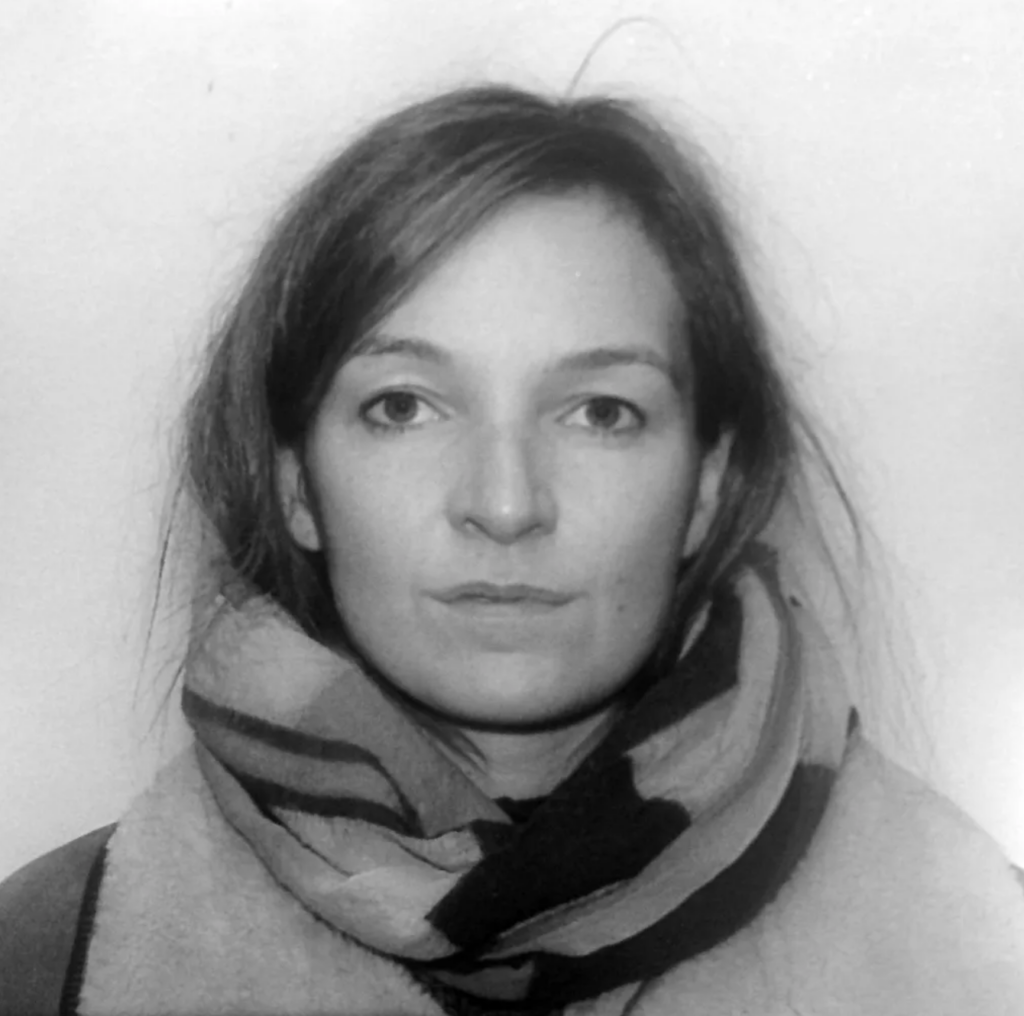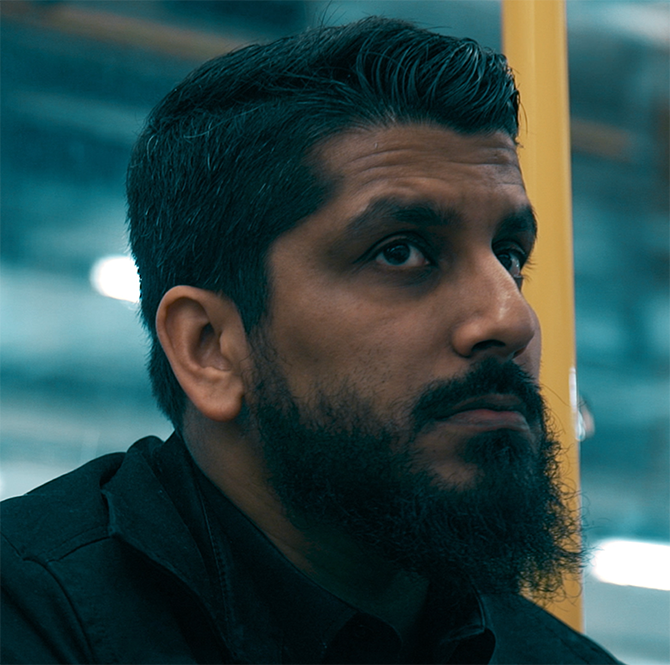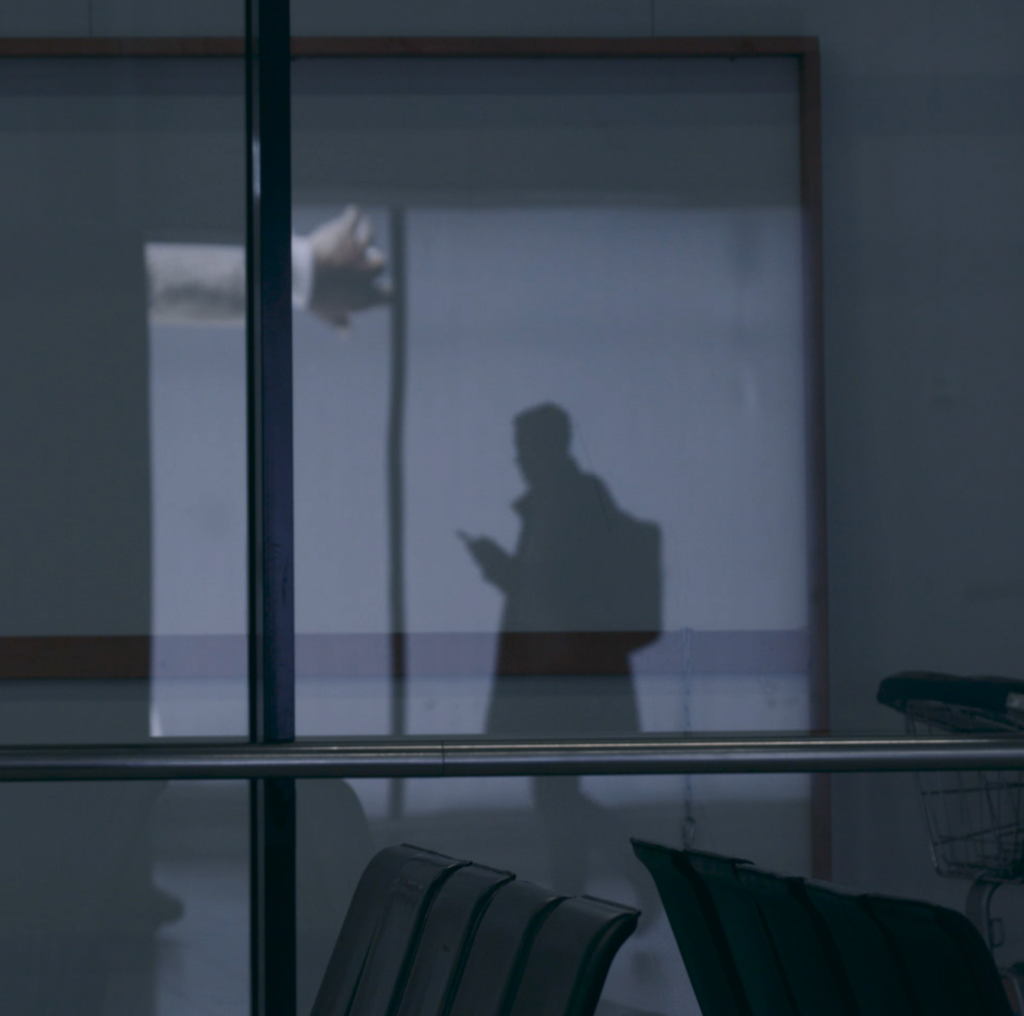Interview with Kate Stonehill, Director of Phantom Parrot

Kate Stonehill, Director of Phantom Parrot.
Phantom Parrot unravels a secret British government surveillance programme, and follows human rights activist Muhammad Rabbani as he is prosecuted under terror laws for refusing to hand over the passwords to his electronic devices, unveiling unsettling questions about the rule of law, modern espionage and digital privacy.
ORG will be participating in a number of Q&A panels at screenings of the film. Ahead of a Nationwide screening of the film ORG interviewed the film’s director Kate Stonehill.
Inspiration and Motivation
What inspired you to create a documentary focused on surveillance issues? Were there specific real-world events that motivated you to delve into this topic through a documentary format?
My work in general is focused on the relationship between the citizen and the state. I’m interested in the way that technology has redefined our relationship to powerful institutions in the digital age. I first met Muhammad Rabbani – the film’s lead contributor – through another individual who had featured in a short film I’d made (about Prevent – which ORG have done some great work around).
When I met Rabbani, he had been charged with a terrorism offense for his refusal to hand over the passwords to his electronic devices. I didn’t know much more than that, but I was struck by the opportunity to follow a story that could provide an entry point into vital conversations about our data, and the often coercive methods that can be used to obtain it. The pieces of the film came together organically over about five years.
Narrative Choices
How did you structure the documentary to effectively convey the concerns surrounding surveillance? Were there specific documentary techniques or storytelling methods you employed to engage the audience on this issue?
It is difficult to ask an audience to grasp the nuances of device extraction technologies when most of us don’t even really understand how much data exists on a mobile device. But I felt for the story to land, it was important to communicate the sheer magnitude of information that is available on our phones, how this data can be accessed, and ultimately what that might mean for us. We worked with an amazing graphics company called Past Curfew to create sequences showing what happens when phone data is extracted. Our wonderful composer Nainita Desai also created a harrowing score to accompany these moments, where audiences are given time and space to reflect on what it means to have your data extracted.
I also wanted the film to interrogate the question of how we have arrived in the place we find ourselves today, with a law like Schedule 7 being used to stop activists and journalists engaged in non-violent activities. We decided to use parliamentary archive of debates surrounding the Terrorism Act 2000, to go back in time and shed light on how a law that was passed seven years before the first iPhone was released is now being used to extract data from phones.

Muhammad Rabbani, Human Rights activist and Phantom Parrot’s lead contributer.
Impact and Awareness
What impact do you hope your documentary will have in raising awareness about the Phantom Parrot programme?
Coming out of my work on this film, one of the areas that I learned about, and that I find most concerning, is the question of consent, in relation to mobile device searches. Many people do consent to a search of their phone. But do people who consent to a search of their phone really understand what they are consenting to? I think the film is an opportunity to educate audiences about the extent of Mobile Device Forensic Tools’ potential; what kind of data they capture; and how these tools have been and can be used by the authorities.
“The data extraction technologies featured in the film are used by police forces, counterterrorism, and border authorities in many countries. The stakes for understanding the implications of surveillance, in the current political landscape, are incredibly high.”
Kate Stonehill, Director of Phantom Parrot
Political Relevance
In the current political climate, how do you see your documentary contributing to discussions around surveillance policies?
I hope the film leads audiences to reflect on the criminalization of protest more broadly. The law that the film zeroes in on, Schedule 7 of the Terrorism Act, is one example of a law that has been used to stop and question activists and journalists. One month after our first public screening of the film, a French publisher was stopped under this law. He was asked for the passwords to his electronic devices, questioned about his opinions of Emmanuel Macron and his view on pension reform in France. And Schedule 7 is not a law that functions in isolation. I want audiences to ask: what do we lose when we lose our ability to criticize the government? Even if you aren’t doing the work that activists and investigative journalists are doing, we all have a stake in work that is holding power to account.
I’m also hoping that people watch the film and consider the relationship between technology and policing. The data extraction technologies featured in the film are used by police forces, counterterrorism, and border authorities in many countries. The stakes for understanding the implications of surveillance, in the current political landscape, are incredibly high. So I hope that audiences reflect on their potential to create and reinforce harm.

Still from the documentary, Phantom Parrot.
Balancing Entertainment and Advocacy
How did you balance creating an engaging documentary while addressing the serious nature of surveillance issues? Do you think it’s important for documentaries to both captivate audiences and educate them on significant topics?
I see representing real people’s lives on screen as a huge responsibility. Especially when I’m embarking on something like dramatic reconstructions, where I’m taking more artistic license with particular details, it’s really important to me that the film maintains an integrity – that it still feels true, and that audiences are connected to the reality of what someone experienced.
From the very beginning, I felt that recreating the Schedule 7 stop would be necessary – and I was actually excited by the creative challenge of bringing this moment to life, a moment that I never could have filmed. One of the things I always found extraordinary was that when you are questioned under Schedule 7 you have no right to remain silent. I really wanted to find a way to highlight that in the film. I had the transcripts of Rabbani’s Schedule 7 stop, and what I found shocking was that these transcripts were the offense. We actually shot a live-action reconstruction initially, which helped me understand this moment and the role it would play in the film. Rabbani was present and also took part in this. But as the process developed, I felt there was merit in bringing in an aesthetic that evoked a wider system, by existing as a computerized program, rather than focusing on individuals.
I definitely do believe that documentaries can and should both captivate and educate audiences. As a filmmaker, I feel that my job is to bring audiences on a journey, to help them best understand the visceral reality of a certain person’s experience. The incredible privilege of making this film was working with the people in the film who are doing vital work at the intersection of human rights and technology, but also working behind the scenes with a wonderful group of filmmakers, to channel the hidden world of surveillance in a way that was compelling and revelatory. We have many creative tools at our disposal to do this, and I think we all found it exciting to explore how to translate such a complex but important story on screen.
Future Impact
Are there specific changes or actions you would like to see as a result of your documentary?
I’d love the film to generate greater transparency around the use of U.K. surveillance powers. One way this could happen is if the U.K. government committed to publishing the number of digital phone downloads it does annually. I also want the film to amplify the important work of organizations like Open Rights Group (and others) who are engaged in advocacy about the use of surveillance technologies.
ATTEND A SCREENING OF phantom parrot
ORG is teaming up with the filmmakers of Phantom Parrot at several of the UK screenings. Join us to watch the documentary followed by a Q&A session featuring an ORG representative.
Book now